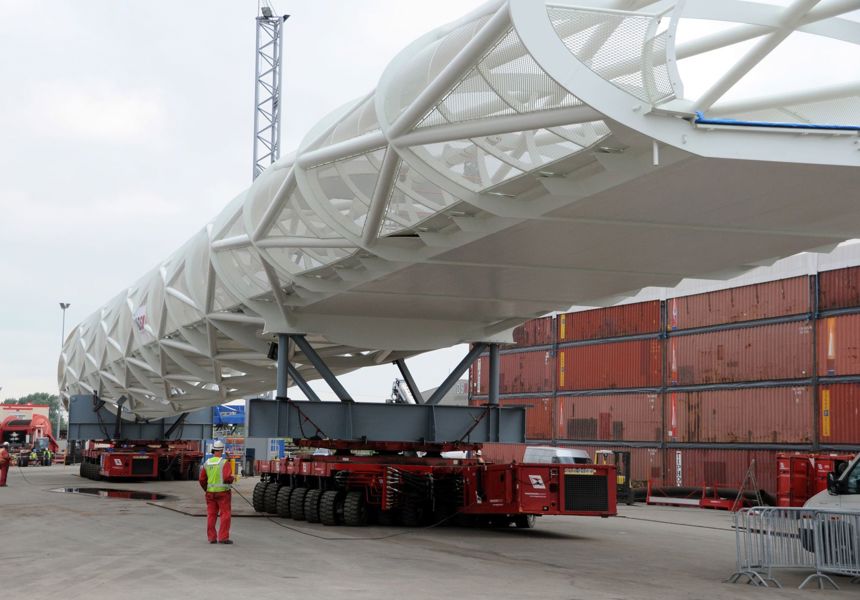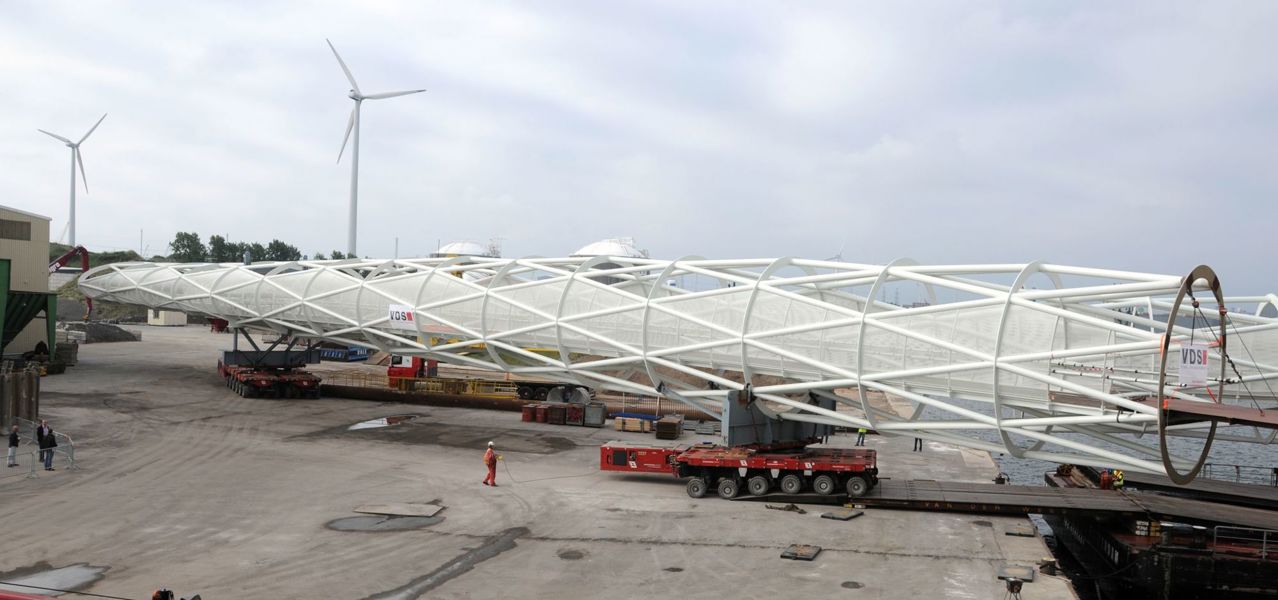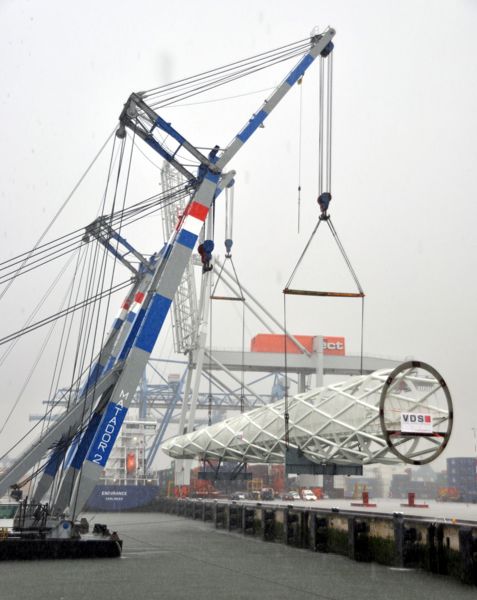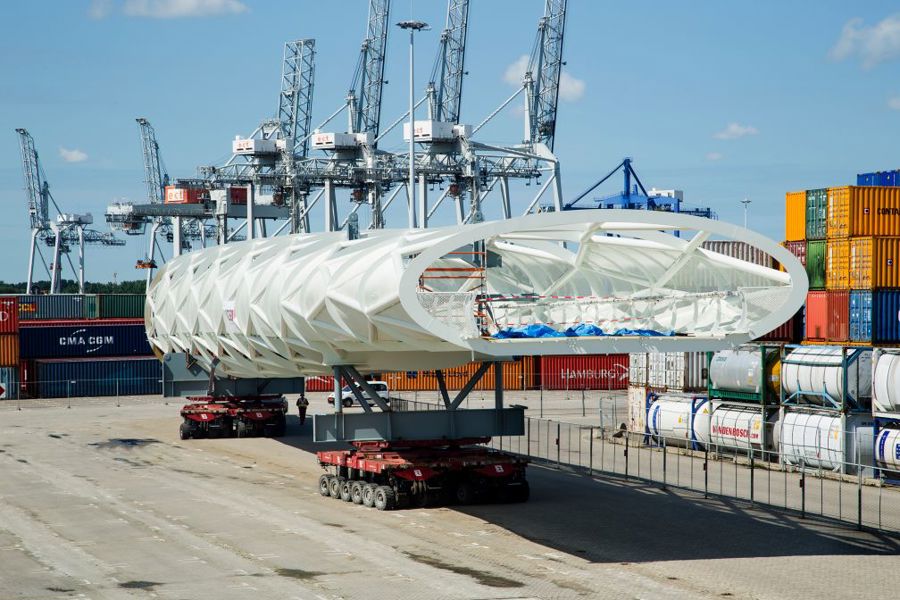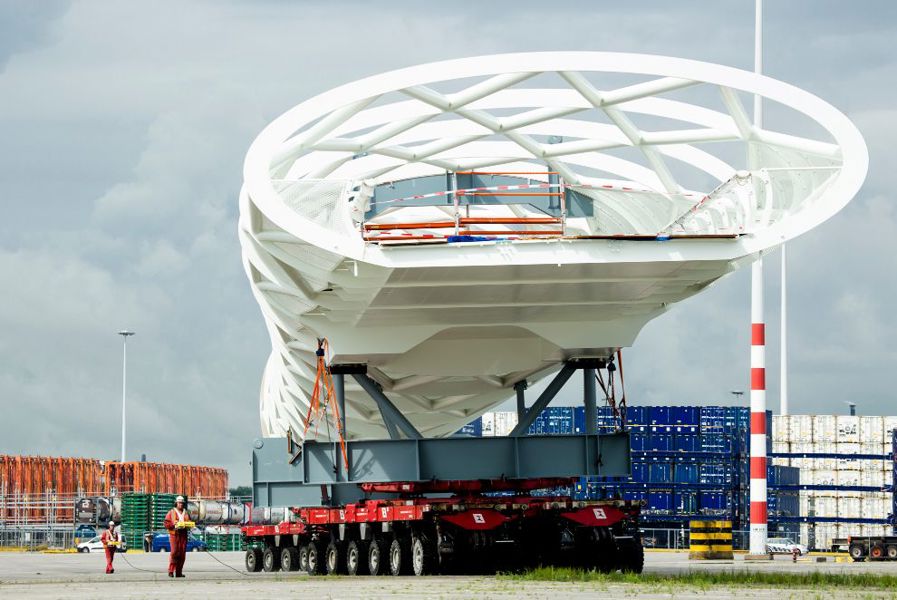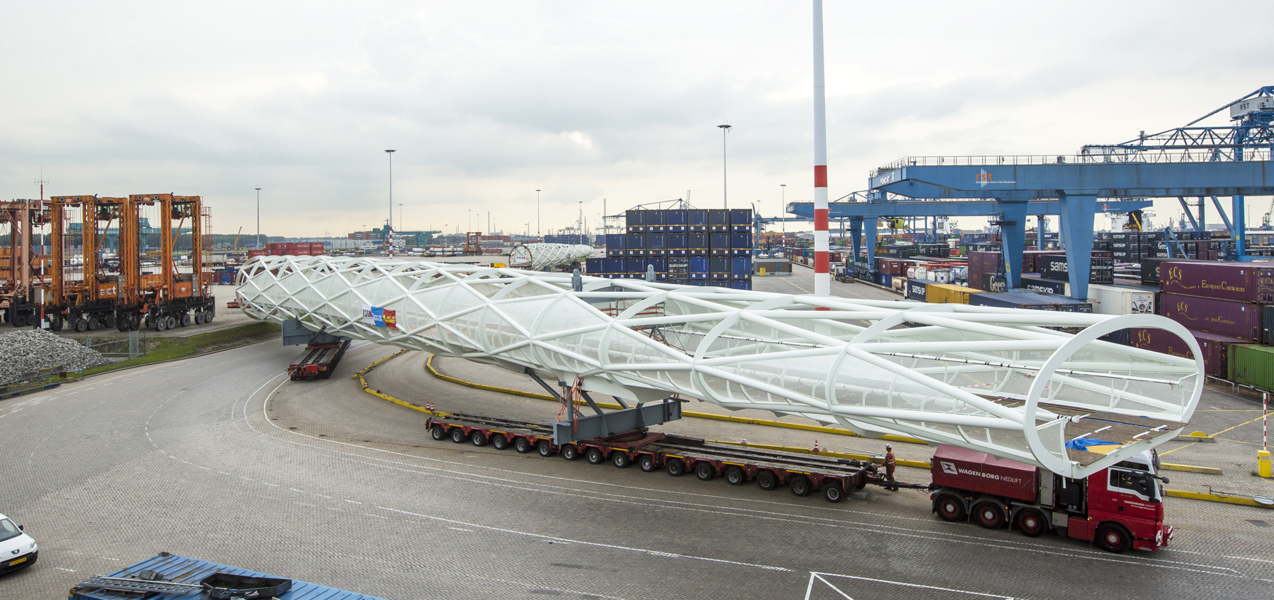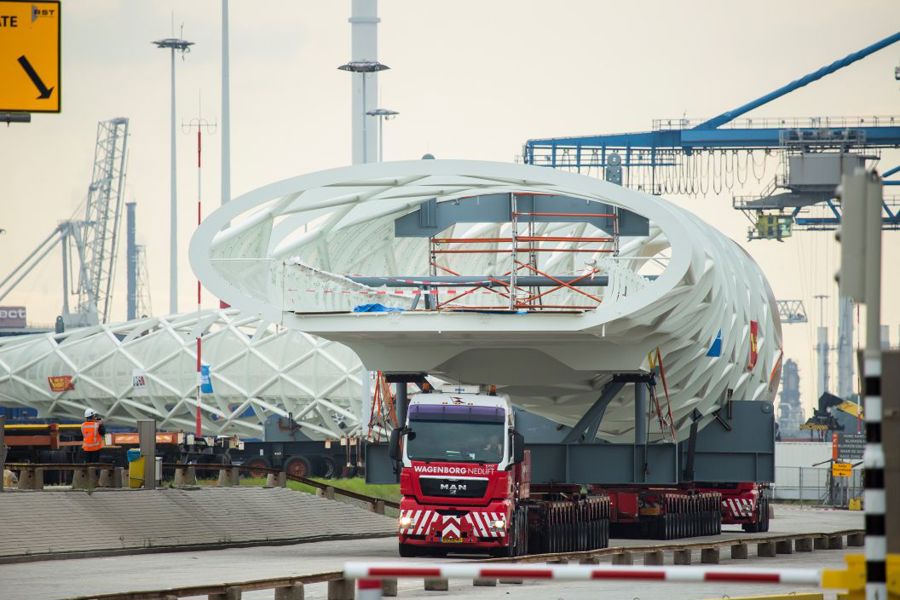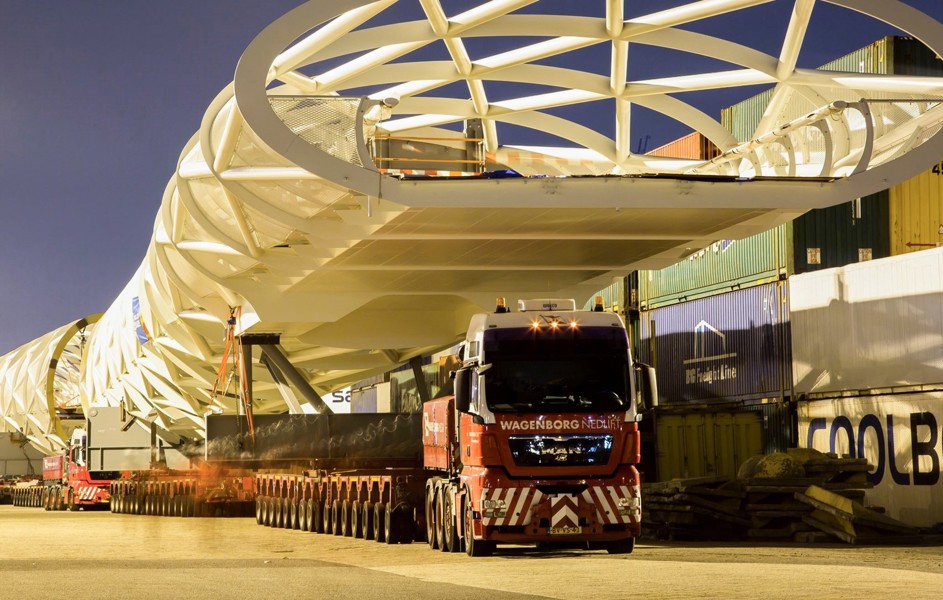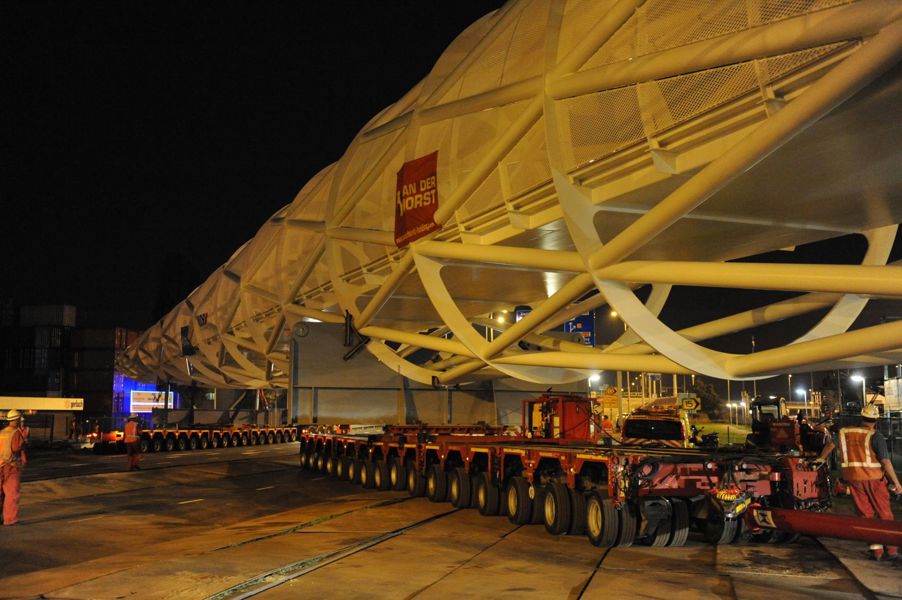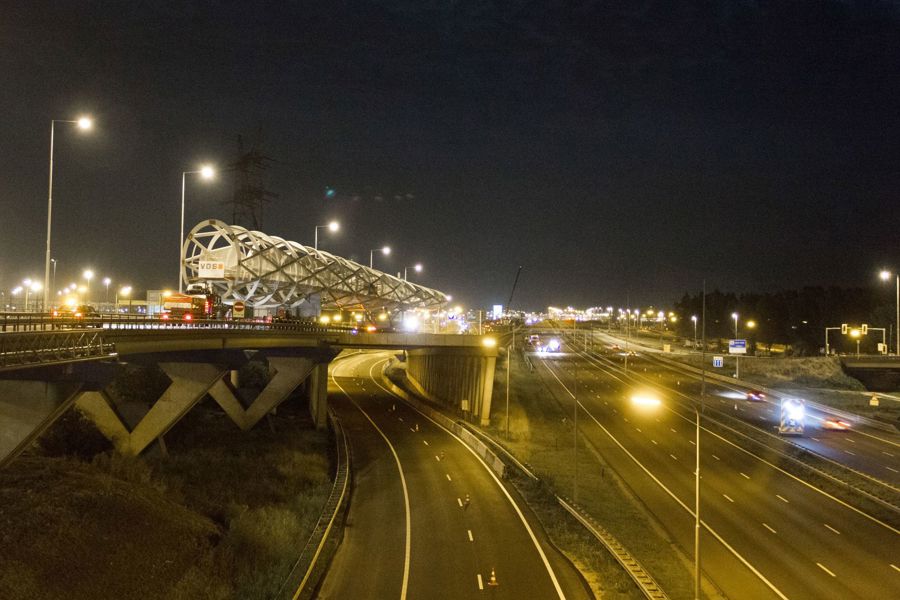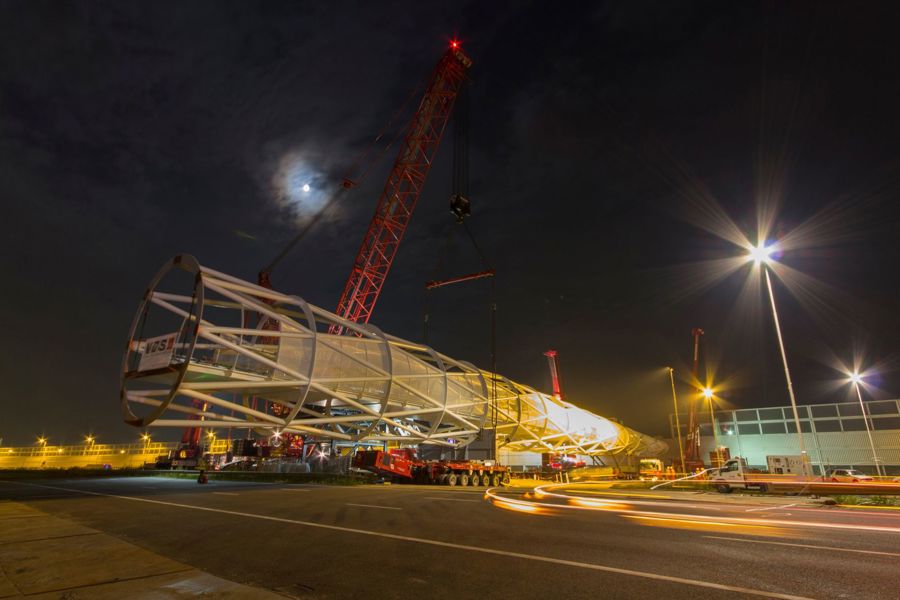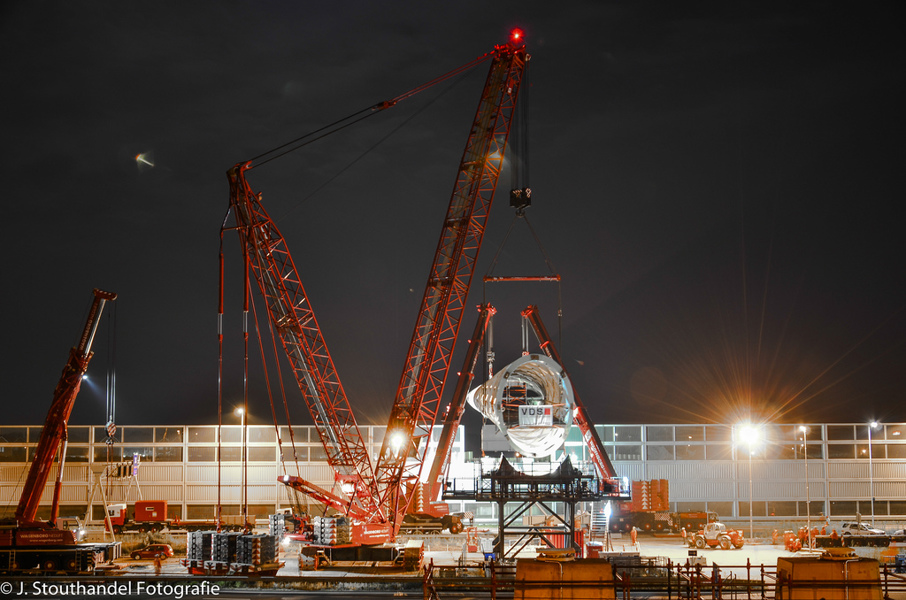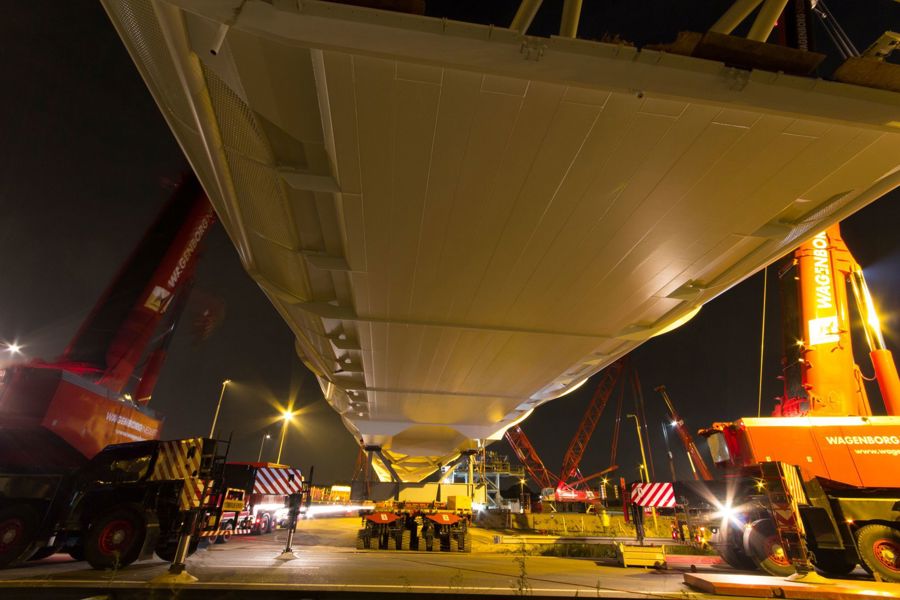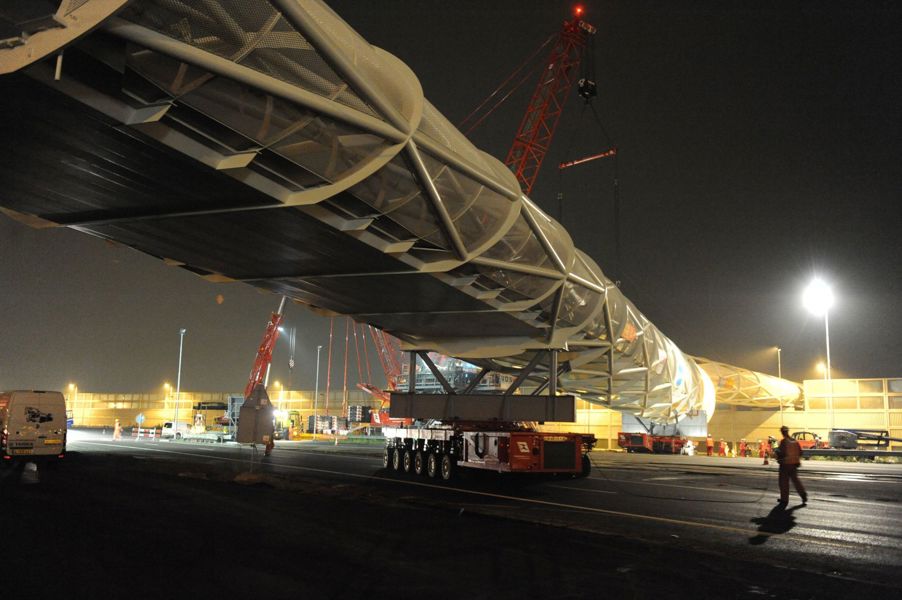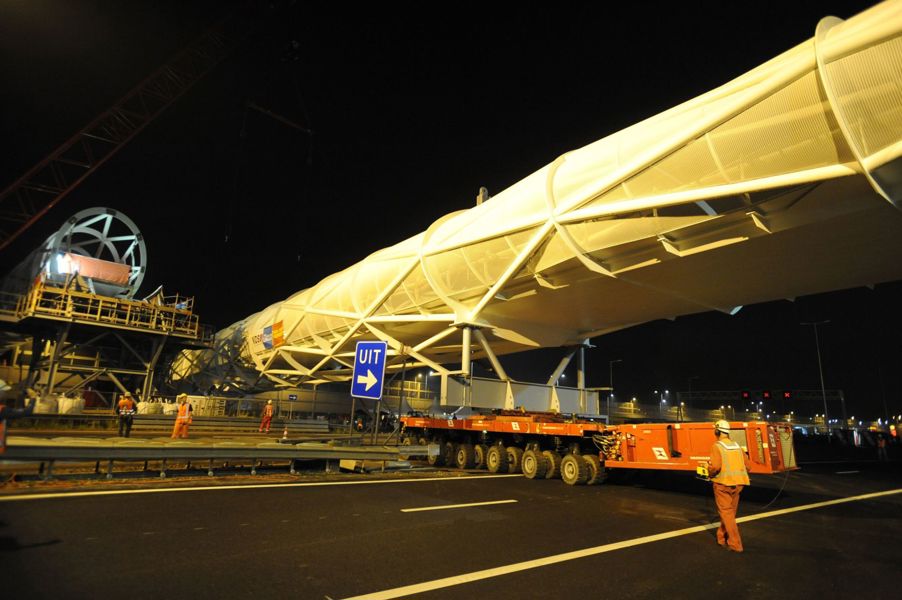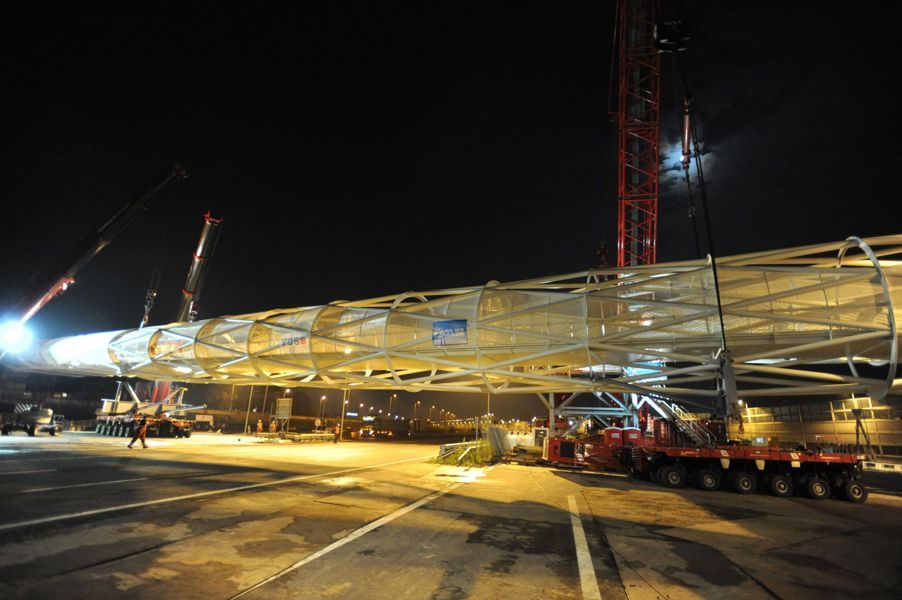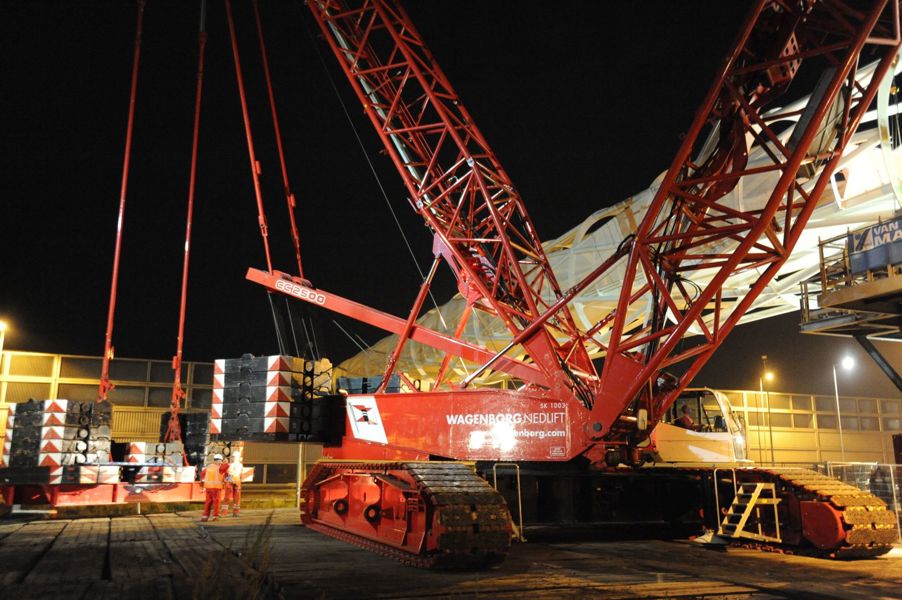
The 'Green Connection'
Figuring out transport options
The original plan of the city of Rotterdam was to prefabricate the bridge in Rotterdam between the A15 lanes near the bridge foundations. However, production conditions there would be less than ideal. It was decided, therefore, to build the bridge in the fabrication hall of the bridge construction company in Vlissingen. The question arose as to whether it would be possible to transport the bridge to Rotterdam in one piece.
The engineers from Wagenborg Engineering were engaged to carry out a route survey for this option. The route survey showed this was not feasible, but that transport of two 100-metre sections was technically possible.


Transport concept in a nutshell
The plan was to load the 2 bridge sections onto a pontoon in Vlissingen by means of a roll-on operation, transport them by inland waterways to the Princess Margriethaven seaport in Rotterdam, then transfer the bridge sections onto trailers and transport them by road to their final destination on the A15 motorway.
220 metres and 7 spans
Although the distance from the unloading location in the port of Rotterdam to the bridge location on the A15 motorway was only 3 km, this presented the biggest challenge of the entire project. Several overpasses had to be crossed and almost all street furniture had to be removed, including traffic gantries above the A15.
Moreover, was the load-bearing capacity of the overpasses to be crossed sufficient for such a heavy transport combination? For example, the load-bearing capacity of the Reeweg viaduct with a length of 220 meters and 7 spans. Food for thought for the Wagenborg Nedlift engineers. Several transport configurations for SPMTs and conventional axle lines were conceived, calculated and weighed.


Optimal transport concept
The optimal transport configuration consisted of two dollies of 16 conventional axle lines each in a single configuration. Rijkswaterstaat [Directorate-General for Public Works and Water Management] confirmed that the transport permits for this transport configuration were approved. A major breakthrough in the project!
Check here the pictures of the 'Green Connection' project!
Fitting all pieces of the puzzle together
Finally, the moment had arrived. On 16 August 2013 the bridge sections were loaded onto a pontoon in Vlissingen. After a 2-day journey on inland waterways they arrived at the quay in Rotterdam on 19 August.
On 22 August the conventional trailers were mobilised and both bridges were loaded and transported to nearby the exit of the port terminal. At 23:00 hours the public roads including the A15 were closed for other traffic and the first transport combination was given permission to start driving. All traffic signs, lanterns and traffic gantry constructions had been previously removed. Thanks to the extensive preparations and the skills of the Wagenborg Nedlift trailer operators, both bridge sections arrived at their destination a few hours later. It was an impressive sight; two bridges almost 100 m long, 12 m wide and 10 m high, transported over the abandoned A15 motorway.


At the final destination, both bridges were placed on supports. The next night the SPMTs were used once more to transport the first (southern) bridge section to under the crane hook. Two 500-tonne mobile cranes were used on one side of the bridge; the other side was hoisted by a CC2500 crawler crane with superlift counterweight.
On the third night the northern part of the bridge was installed. The crawler crane was still positioned at the temporary support between the lanes. The mobile cranes were rebuilt on the other side of the A15. After ProRail had confirmed that the railway was free, the northern part was also successfully installed.
A few months later the two bridge sections were connected and the temporary central support was removed, resulting in a span of 200 metres.
Transport and lifting operations Green Connection
Awarded with ESTA Award
The exceptional transport of the bridge sections for The Green Connection was given an ESTA Award.
ESTA is the European trade association for the heavy transport, lifting and crane rental sector. ESTA represents the national trade associations in the sector. Every year ESTA Awards are presented for projects that stand out in the field of technical ingenuity, innovation or safety.

About The Green Connection
The Green Connection, also called 'Netkous' (or Fishnets) is a pedestrian and cyclist bridge connecting the city of Rotterdam with the green polders of Buijtenland van Rhoon. The bridge across the A15 and Betuweroute has a free span of 200 metres.

